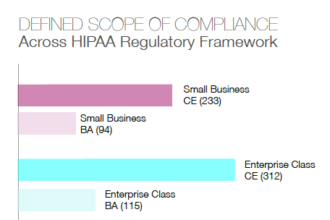There are many ways our healthcare system, as a whole, can better support Black mothers, and almost all of it starts with minimizing the gap that exists regarding equal treatment. In the United States, 42 of 100,000 Black mothers who give birth die, as opposed to only 12 of 100,000 white mothers. Maternal mortality injustices around the world are even more drastic, but changes are being implemented to shrink this gap in inequality, and though change does not appear to be immediate, the overall outlook is positive. Here are a few ways providers can help in the communities they serve.
Take an Honest Look at History
In order to truly understand and address issues and gaps in maternal care, it’s important to understand the history and the context.
According to Marva Lewis, Ph.D. is an associate professor in the Online School of Social Work at Tulane University, “any conversation designed to increase the odds that Black women receive fair treatment in medical settings must recognize the power of modern day structural racism. A legacy of the historic trauma of slavery, this toxic invisible, social virus, provides the faceless foundation of racial disparities the economic, education, psychosocial and emotional health of Black women, their children and families. In 2016 the American Psychological Association identified racial discrimination as an unrecognized source of toxic stress and mental distress.”
In 2019 the American Child Psychiatry identified racism as a major factor in the lives of Black infants.
“These emotionally intense race-based stressors then contribute to disproportionately high rates of hypertension, heart attacks and obesity. In turn, these co-morbidly factors place Black women at high risk for contracting COVID-19. In their role as mothers, wives sisters and cousins, another set of racial disparities in several institutional systems chip away at the psychological well-being of Black women. These experiences of traumatic separation from loved ones and death and loss across the life span of Black women,” adds Dr. Lewis.
Team Up With Black Community Services
A recent survey conducted showed that 4 out of 5 Black mothers believe in and participate in community involvement, and organizations like the Black Mamas Matter Alliance exist across the country and provide support and even midwifery services to Black mothers in their respective communities. Researching and reaching out to organizations that exist to help Black mothers and having a legitimate knowledge of what those community programs do will serve as a great tool in connecting with your patients from those areas.
Newborn care practices differ from community to community, and the percentages of mothers in Black communities who have to go back to work quickly is much higher than in suburban, white communities. Teaming up with community services for things like babysitting training and proper care discussions is a giant step taken in the battle for healthcare equality.
Use Advanced Technology to Address Gaps
With increased technology in healthcare, it is imperative for healthcare providers to look at ways to bridge gaps in care with the use of technology.
According to Mariea Snell, assistant director of the Online Doctor of Nursing Practice program at Maryville University, “it is important for the healthcare professional to be aware of these barriers to care and adapt their approach to account for this. Technology can be very helpful here. Providing telehealth visits can permit these mothers to talk with a provider and get the care that they need while still being able to care for their children.”
Participate in Implicit Bias Training
Ignorance is often a much more realistic excuse for bias than intentional mistreatment, but that certainly doesn’t make it right. Implicit bias refers to ingrained attitudes and stereotypes that affect our actions in an unconscious manner. Thus, training hospital staff on how to recognize and reverse their own implicit biases is a logical first step in lessening the problem.
Training on implicit bias is not a new thing, and major corporations like Facebook and Starbucks have already implemented companywide sessions on the subject. When hospitals follow suit, they will be teaching their staff about unintentional favoritism that ultimately leads to statistics like minorities being prescribed less medication than white people for an equal issue.
Inclusion in Policymaking
With implicit bias certainly shouldering some guilt, many healthcare policies are written without a Black voice. Welcoming and encouraging Black mother voices to discussions on healthcare policy is an absolute must in shrinking the gap. No matter how many individuals start to implement the practices mentioned above, making them the law of the land is the only way to ensure everyone does it. Hear what the Black voices in your communities have to say, and dictate legislation and policy appropriately to better help those who need it the most.
Look at the Whole Picture
It’s essential also to understand the other factors that affect Black mothers and children after birth.
“Black women’s race-based experiences begins prenatally with the failure of health care providers to believe her pleas for help because she feels her pregnancy is in trouble. Individual forms of racism in the form of discrimination, stereotypes and implicit bias are barriers to health care provider’s failure to recognize the beginning stages of birth trauma of pregnant Black women. In 2018 the headlines revealed that the tennis champion Serena Williams described how her health care providers dismissed her requests for hospitalization when she insisted that her pregnancy was in trouble,” says Dr. Lewis.
“Once a Black woman gives birth, she faces separation from her tiny, newborn premature infant. Black infants have the highest rates and begin the first weeks of their lives on Neonatal Intensive Care Units separated from their mommy. If the infant make it to their mother’s home from the hospital they are more likely to die before age 12 months of age.”
Since the inception of the country, any “climb” has been more difficult for people of color than the same climb has been for white people. Women have also fallen victim to mistreatment time and time again in the United States, so really going out of your way to increase the confidence in the care provided to Black mothers is justified and right. The history, the statistics, and the news are all scary things to read for expectant Black mothers, but the reassuring words of her healthcare provider can and will diminish that fear.








